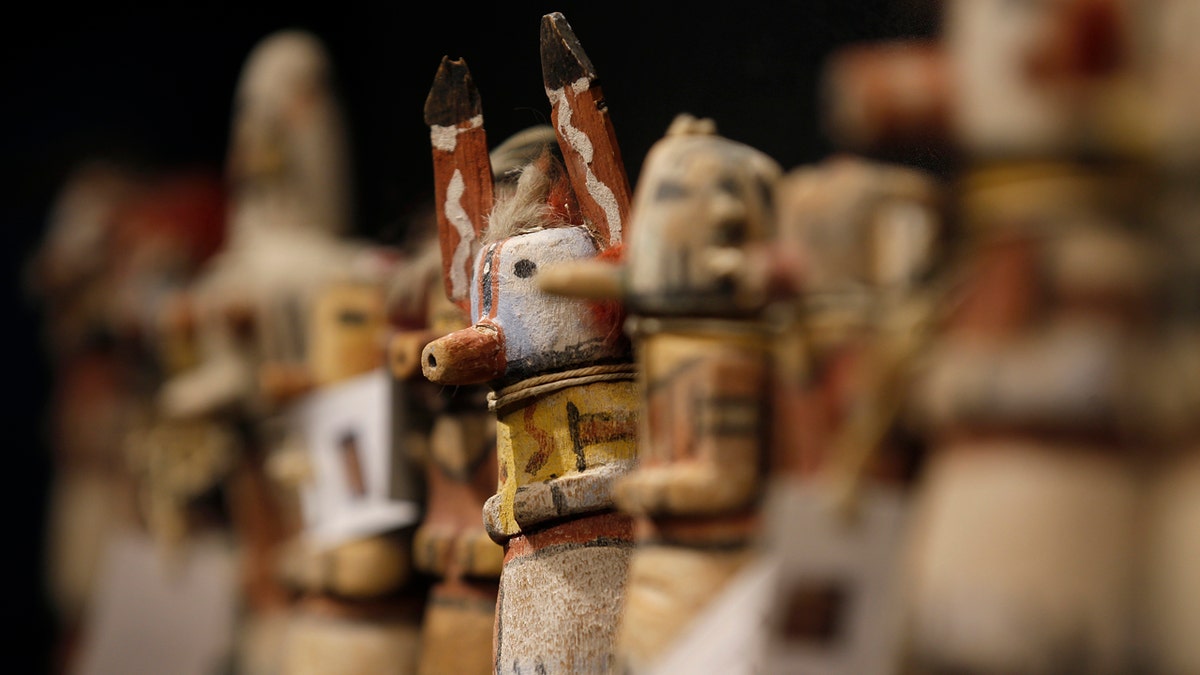
Arizona Snowbowl near Flagstaff in 2010. (AP Photo/The Arizona Daily Sun, Rand Wilson, File)
A long-running dispute between the Hopi Nation and an Arizona ski area took a new turn earlier this month, when a state court of appeals ruled the Native American tribe has the legal right to fight against the use of treated wastewater to make snow.
The ruling by the Arizona Court of Appeals disagreed with a 2016 Coconino County Superior Court’s order to dismiss the Hopi complaint for a lack of standing, because the tribe could not show a specific injury required to make a public-nuisance claim. The tribe claims the decision by the city of Flagstaff to sell wastewater to the Arizona Snowbowl not only caused a public nuisance, but harmed the environment, and interfered with Hopi religious and cultural traditions.
“Natural resources that the Hopi collect, as well as shrines, sacred areas, and springs on the Peaks will come into contact with the blown reclaimed wastewater,” Judge Kenton Jones wrote in the unanimous appeals court opinion. “This negatively impacts the Hopi's use of the Snowbowl Resort Area, the Wilderness Area, and surrounding areas, and causes Hopi practitioners to stop using the areas they have traditionally used.”
The Hopi’s fight with the ski resort dates back long before Snowbowl began using wastewater to make snow. It was one of several tribes who opposed the expansion of resort to include shops, restaurants and lodges when it was proposed in 1969. In their complaint – along with numerous legal actions since – the Hopis argued the mountain where the ski area is located – along with other mountains in northern Arizona’s San Francisco Peaks – are home to kachina spirits integral to Hopi and other Pueblo tribes religious beliefs.
Snowbowl, which sits about 11 miles outside of Flagstaff, is located on the western faces of Humphreys Peak – or Aaloosaktukwi, in Hopi - in the Kachina Peaks Wilderness in the Coconino National Forest. The Hopis claim to have settled on this land dating back to 1150
In the early 1980s, the Hopis were one of several tribes to challenge the U.S. Forest Service's approval of upgrades to Snowbowl, arguing the changes violated the Free Exercise Clause of the First Amendment, and would "seriously impair their ability to pray and conduct ceremonies upon the Peaks."
The current battle dates back to 2002, when Flagstaff agreed to sell 180 million gallons of the water to Snowbowl. The Forest Service approved the use of the reclaimed water in 2005, but a challenge from several tribes has kept the matter in the courts - even after the resort started using the wastewater in 2012.

Hopi kachina dolls represent spirits in the the Native American religion. (Reuters)
The Hopis argue the resort would not be able to contain the run-off of the water, which it claims contains pharmaceuticals, veterinary drugs, insecticides and hormones, among other chemicals, and that it would enter the water supply. The tribe also asserts that winds would carry the artificial snow beyond resort boundaries – thus contaminating the peaks in the region and interfering with Hopi cultural practices.
Staff at Snowbowl countered that with climate change bringing warmer and drier winters to the Southwest, snowmaking is a hedge against shorter snow seasons.
“I don’t ever question tribal beliefs or culture. I don’t question that when they say it’s sacred. But it’s public land with a land use designation for a ski area and it has been designated that way since 1938,” ]JR Murray, Snowbowl’s general manager, told the Guardian of the 80-year-old ski resort, one of only four in Arizona. “There are hundreds of thousands of people per year that enjoy the recreation we provide and the snowmaking sustains that.”
The 2017-18 ski season at Snowbowl opened with protests from tribes and advocacy groups like Protect The Peaks and calls to “quarantine” the resort. The advocacy called on the Flagstaff City Council to end its wastewater deal with Snowbowl, expressed
“The amount of disrespect for the land, and all people who inhabit it, is disgusting,” protestor Mary Begay said.
While the ruling by the panel of three appellate-court judges made clear that their decision does not include an opinion on the merits of the Hopi case, but does grant the tribe the opportunity to plead their case in a superior court.









































